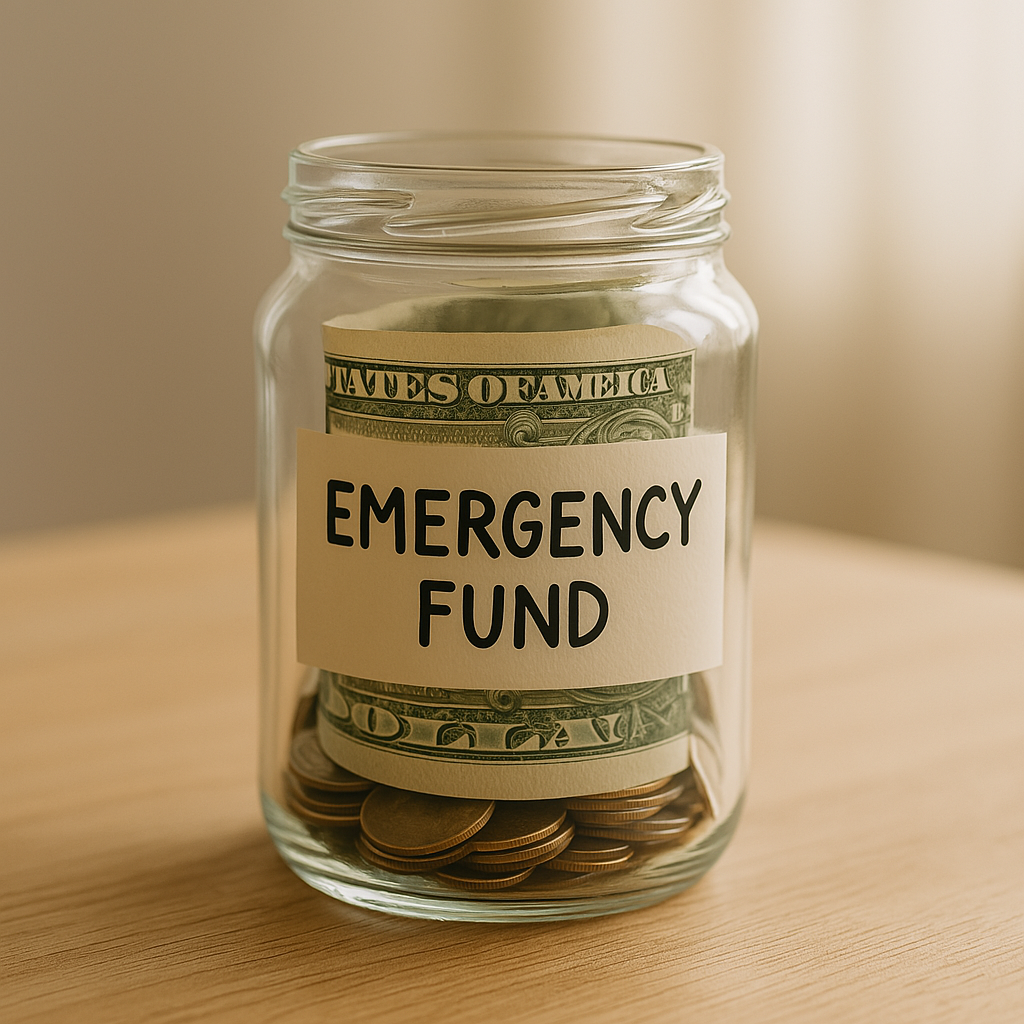When it comes to Surviving a Recession Caused by Surging Tariffs, I learned the hard way that no one is immune. A few years ago, a sudden trade war sent prices skyrocketing and jobs disappearing almost overnight. I was just an ordinary small business owner and a parent, but I found myself struggling to keep my company afloat and put food on the table. It felt like the rug was pulled out from under us. But through that painful experience, I discovered 10 hard lessons that not only helped me survive that tariff-fueled recession, but also come out stronger. I’m sharing my story in hopes that these lessons will help you navigate and survive a recession caused by surging tariffs, too.
Trucks crossing the U.S.–Mexico border loaded with goods. Trade disputes and surging tariffs can slow commerce and trigger recessions by raising costs for businesses and consumers.
Table of Contents
Lesson 1: It Can Happen to You – Don’t Ignore the Warning Signs

I used to think trade wars and tariffs were abstract problems for economists to worry about. I was wrong. One of the first hard lessons I learned about surviving a recession caused by surging tariffs is that no one is completely safe. When the government imposed steep tariffs on our major trading partners, it set off a chain reaction. Prices for everyday items like groceries and gas crept up, and our customers started cutting back on spending. In fact, economists warned that these tariffs – some as high as 25% – would make almost everyone poorer and even lead to net job losses in affected industries
npr.org. I saw that prediction play out in real time when orders at my business dried up and a couple of my coworkers got laid off within months.
At first, I was in denial. News headlines talked about “recession risk” and falling markets, but I told myself it wouldn’t affect me. I wish I had paid closer attention to the warning signs. Rising prices and slowing orders were red flags I should not have ignored. Looking back, I realize that accepting reality early is crucial for surviving a recession caused by surging tariffs. It’s a hard lesson: if you hear credible warnings that tariffs or other economic shocks are looming, don’t brush them off. Pay attention to how it might impact your job, your business, and your cost of living. Had I acknowledged the danger sooner, I would have started preparing my finances and making contingency plans much earlier.
So, remember: a tariff-driven recession can impact everyone, even if you don’t work in manufacturing or international trade. Higher import taxes ripple through the whole economy. When tariffs surge, the cost of raw materials goes up for businesses, who then raise prices on consumers, who then buy less – it’s a vicious cycle. I learned that staying informed and taking early warnings seriously is the first step to surviving a recession caused by surging tariffs. Don’t wait until the bottom falls out to act.
Lesson 2: Emergency Funds Are Lifesavers – Build Your Safety Net Early

When the recession hit, one of my biggest regrets was not having a larger emergency fund. I had some savings, but not nearly enough to weather months of slow business. This downturn taught me the hard lesson that having a financial cushion is absolutely essential for surviving a recession caused by surging tariffs. If you haven’t already, start building your emergency fund now – long before the storm hits.
I’m not alone in learning this lesson. During that crisis, it became clear that many Americans were living paycheck to paycheck with little saved for emergencies. A report in 2025 found that 59% of Americans didn’t have enough savings to cover even a $1,000 surprise expense
cbsnews.com. In other words, most people lacked a basic safety net. I was nearly one of them. When our income took a hit due to the tariff-induced recession, unexpected bills (like a broken refrigerator and a medical co-pay) pushed us to the brink. We had to put some charges on a credit card and scramble to make minimum payments. I remember feeling panicked and wishing I had listened to the classic advice of saving 3–6 months’ worth of expenses for a rainy day.
I’m not alone in learning this lesson. During that crisis, it became clear that many Americans were living paycheck to paycheck with little saved for emergencies. A report in 2025 found that 59% of Americans didn’t have enough savings to cover even a $1,000 surprise expense
cbsnews.com. In other words, most people lacked a basic safety net. I was nearly one of them. When our income took a hit due to the tariff-induced recession, unexpected bills (like a broken refrigerator and a medical co-pay) pushed us to the brink. We had to put some charges on a credit card and scramble to make minimum payments. I remember feeling panicked and wishing I had listened to the classic advice of saving 3–6 months’ worth of expenses for a rainy day.
That cash buffer was a life-saver. It meant I could keep a roof over our heads and the lights on when my business revenue nearly flatlined. My emergency fund gave me breathing room to make smarter decisions instead of pure panic. If I hadn’t had any savings, I might have lost my home or been forced to take a very high-interest loan. This lesson was learned through real pain, and I’ll never forget it: Before and during a recession, make saving money a top priority. An emergency fund is the bedrock of surviving any recession, especially one caused by surging tariffs and economic turmoil. It’s much easier to survive when you have a financial cushion to fall back on.
(Action Tip: If you don’t have an emergency fund yet, start with a small goal like $500 or $1,000. Gradually build it up to cover a few months of basic expenses. Treat it as non-negotiable – your future self will thank you.)
Lesson 3: Budget Ruthlessly – Cut Costs Early and Often

When our household income started dropping, we had to make some tough choices. One hard lesson I learned about surviving a recession caused by surging tariffs is that you must get your spending under control – fast. I had always considered myself fairly frugal, but this crisis pushed me to a new level of budgeting. In hindsight, I should have started cutting costs at the first hint of trouble, not after things got dire.
When our household income started dropping, we had to make some tough choices. One hard lesson I learned about surviving a recession caused by surging tariffs is that you must get your spending under control – fast. I had always considered myself fairly frugal, but this crisis pushed me to a new level of budgeting. In hindsight, I should have started cutting costs at the first hint of trouble, not after things got dire.
We sat down and went through our expenses line by line. It was an eye-opener. We canceled streaming subscriptions, paused gym memberships, and said goodbye to restaurant dinners. We even negotiated with our internet and phone providers for cheaper plans. I started tracking every dollar with a simple budgeting app (there are plenty of free ones out there) and focused on the absolute essentials: housing, utilities, groceries, and transportation. Every non-essential expense was up for elimination or downgrade.
We sat down and went through our expenses line by line. It was an eye-opener. We canceled streaming subscriptions, paused gym memberships, and said goodbye to restaurant dinners. We even negotiated with our internet and phone providers for cheaper plans. I started tracking every dollar with a simple budgeting app (there are plenty of free ones out there) and focused on the absolute essentials: housing, utilities, groceries, and transportation. Every non-essential expense was up for elimination or downgrade.
(Action Tip: Try the 50/30/20 rule during tough times: aim to spend no more than 50% of income on needs, 30% or less on wants, and at least 20% on savings/debt. In a recession, you might push “wants” near zero and redirect that money to essentials and savings.)
Lesson 4: Find New Income Streams – Don’t Rely on Just One Job

When my main source of income faltered because of the recession, I faced another harsh reality: having only one income source is risky. One of the most important lessons for surviving a recession caused by surging tariffs is to diversify your income if possible. In my case, I went from having a stable single paycheck to suddenly needing to hustle on the side just to make ends meet.
As the tariff-induced downturn deepened, overtime hours at my primary job were cut and my small business’s sales dwindled. I realized I could no longer count on that one paycheck to cover all our bills. It was a scary moment. But it pushed me to get creative and find alternative ways to earn money. I started doing gig work and side jobs to supplement our income. On weekends, I drove for a rideshare service, picking up passengers to earn a little extra cash. In the evenings, my spouse began freelancing online, offering graphic design services on a freelance platform. We also turned a hobby into a small side business: we made and sold custom T-shirts featuring uplifting quotes about resilience (something we were trying to remind ourselves of daily).
The truth is, surviving a recession caused by surging tariffs may require you to step out of your comfort zone and explore new income opportunities. Is there a skill you have that others might pay for? It could be anything: tutoring students, fixing computers, babysitting, handyman work, selling crafts online, or monetizing a hobby. In our community, I saw people start home bakeries, take on landscaping jobs, and even rent out their extra room to travelers. We all had to wear multiple hats to bring in money.
Lesson 5: Be Ready to Pivot in Your Career or Business
During the tariff-driven recession, adaptability became my secret weapon. I learned that to survive a recession caused by surging tariffs, you must be willing to pivot – in other words, change direction in your career or business when circumstances demand it. This was one of the hardest lessons for me, because change can be scary. But being flexible and open-minded about your path is often necessary in turbulent times.
In my own experience, the industry I worked in was hit directly by the tariffs. I ran a small manufacturing business that relied on imported materials. When tariffs on those materials surged, my costs shot up 25% virtually overnight
npr.org. We raised prices, but that drove some customers away. Profit margins collapsed. It became clear that if I didn’t pivot my business model, we wouldn’t survive. So, I made the tough call to switch suppliers and adjust our product line. We found a domestic supplier for some parts (even though they were a bit lower quality) to avoid import taxes, and we focused on products that weren’t subject to the new tariffs. I even explored new markets in countries not affected by the trade war. These changes were complicated and took effort, but they helped us hang on.
Not everyone is a business owner, but the concept of pivoting applies to workers and professionals too. A friend of mine lost his job at a company that was struggling with higher production costs due to the tariffs. Instead of waiting for things to turn around, he decided to pivot his career – he took an online course (many were free or low-cost during the recession) and learned new skills in a different field that wasn’t as hurt by the trade conflict. Within a year, he transitioned from manufacturing to an IT support role. It wasn’t his first choice, but that flexibility meant he could keep earning a living. Later, after the recession, he even leveraged his new skills into a better-paying job.
The ability to adapt is a huge asset when surviving a recession caused by surging tariffs. Ask yourself: if your industry or job is at risk due to the tariffs and resulting recession, how can you pivot? Maybe it’s learning a new skill, moving to a different department, or taking on a different role that is in demand. Maybe it’s altering your product or service lineup to fit the changed market. Companies that adapted survived; those that didn’t often went under. I saw this in real time – some local shops found creative ways to stock alternative goods that weren’t tariffed, while others who stuck to business-as-usual had to shut their doors.
This lesson taught me not to get too comfortable with the status quo. In a fast-changing economic situation, staying flexible and nimble is key. Keep an eye on economic trends and be ready to adjust your career plans or business strategy. It might feel like starting over in some ways, but it can make all the difference in keeping you employed or your business running. Surviving a recession caused by surging tariffs often means reinventing yourself just enough to weather the storm.
Lesson 6: Lean on Your Community – Don’t Isolate Yourself
Lesson 6: Lean on Your Community – Don’t Isolate Yourself
At the height of the recession, I’ll admit I felt embarrassed about our financial struggles. Initially, I tried to put on a brave face and handle everything myself. But as the months dragged on, that became impossible. Eventually, I opened up to a close friend about how hard things were. To my relief, I found out we weren’t the only ones struggling. Many people in our town were in the same boat thanks to the tariff-induced downturn. Once we all started talking openly, a beautiful thing happened: we began helping each other.
For example, a few neighbors formed a weekly carpool to work to save on gas since fuel prices were high. I joined in, and it cut my commuting cost significantly. In return, I often cooked extra portions of dinner and shared with a neighbor whose grocery budget was stretched thin. Another friend had a garden and traded fresh vegetables for some of our pantry staples. We even organized a community swap meet where families exchanged useful items (clothes, tools, school supplies) instead of buying new. These acts of sharing and cooperation saved us all money and made daily life a bit easier.
Emotional support was just as important. Simply being able to talk honestly about our fears and challenges with people who understood was a huge relief. We cheered each other on and celebrated small wins together (like when someone landed a side job or paid off a debt). That moral support kept hope alive during the darkest days of the recession.
The lesson here is that connection is key to survival. Don’t isolate yourself when times are tough. Reach out to people you trust. It could be family, friends, neighbors, faith groups, or support groups. You might be surprised how willing people are to help, and how much you have to offer them too. We all have different strengths and resources, and by pooling them, you create a safety net stronger than any one person’s. Whether it’s sharing meals, skills, childcare, or just encouragement, we’re stronger together.
Surviving a recession caused by surging tariffs taught me that community is everything. This hard lesson turned out to be a beautiful one as well: in crisis, people can truly come together. So, don’t be afraid to ask for help, and definitely don’t hesitate to help others if you can. It can lighten the load for everyone involved and build bonds that last long after the recession ends.
Lesson 7: Stay Informed and Proactive – Knowledge is Power

During the turmoil, I realized how important it was to stay informed about what was happening in the broader economy. At first, I avoided the news because it was all doom and gloom about tariffs and recession. But I came to learn that knowledge is power, and staying informed helped me make proactive moves. An essential lesson for surviving a recession caused by surging tariffs is to keep up with relevant news and policy changes, and then act on that information.
Why does this matter? Well, consider this: the whole recession was sparked by policy decisions – specifically, the government enacting huge tariff increases. Those decisions didn’t happen in a vacuum; there were news reports and announcements leading up to them. In my case, had I paid more attention to the early signs of the trade war escalating, I could have started preparing my business and household sooner (as I mentioned in Lesson 1). For instance, when I eventually read that new 25% tariffs on imports were going into effect
Staying informed also means understanding available resources and assistance. During the recession, there were relief programs and policy responses coming out to help people and businesses. By keeping an ear to the ground, I learned about a temporary tariff relief program for small businesses – we applied and got a small grant that helped pay for inventory. I also found valuable advice in reputable sources on how to cope: for example, I read a financial survival guide on a well-known money website that provided tips on budgeting (which we applied) and avoiding panic selling investments (more on that in the next lesson).
Being proactive goes hand-in-hand with being informed. It’s not enough to just passively read the news; use that information to make a plan. If economists are warning that tariffs could contribute to a recession
Lesson 8: Protect Your Mental Health – Stay Positive and Focused
Amid all the financial and practical advice, I learned that mental health is a crucial part of survival. This recession was not just an economic battle, but an emotional one. Stress, anxiety, and even depression can creep in when your livelihood is at stake. One of the hardest but most important lessons I learned while surviving a recession caused by surging tariffs was to take care of my mental well-being and cultivate a hopeful mindset.
At my lowest point, I remember lying awake at 3 AM with my mind racing: How will I pay the mortgage this month? What if I lose the business? What if I can’t provide for my family? The weight of those thoughts was crushing. It’s easy to feel hopeless when you see your savings dwindle and news headlines scream about economic doom. I certainly had moments when I wanted to throw in the towel. But I gradually realized that letting fear take over would paralyze me, and I couldn’t afford to freeze up. I had a family and employees counting on me.
So, I made a conscious effort to manage my stress and stay positive. I’m not talking about blind optimism or ignoring reality – but rather, finding healthy ways to cope and maintain perspective. For me, exercise became a big stress reliever. I started taking early morning walks around the neighborhood to clear my head before the day began. It was free therapy. Sometimes my wife or a neighbor would join, and we’d share our worries and encouragement, which made us all feel less alone. I also limited how much news I consumed each day; I stayed informed, but I didn’t need hourly reminders of the crisis, as that only fueled my anxiety.
I also sought free or low-cost counseling resources. Many communities offer support groups or counseling services, especially during widespread economic hardship. Talking to a professional about the stress was incredibly helpful for me and removed some of the stigma I’d felt about “not handling it well enough on my own.” If you’re facing a recession-induced crisis, please remember that your mental health matters. Take breaks, get enough sleep, and don’t hesitate to talk to someone – whether a therapist, a support group, or a trusted friend.
In summary, staying positive and mentally healthy is a survival strategy. It’s what allows you to implement all the other lessons effectively. When you take care of your mind and emotional well-being, you can make clearer decisions about your money, job, and family. I learned that even in an economic recession, there can be moments of personal growth, kindness, and hope. Cling to those. Surviving a recession caused by surging tariffs isn’t just about dollars and cents – it’s about maintaining the willpower and spirit to keep moving forward, one day at a time.
Lesson 9: Don’t Panic with Investments – Think Long-Term if You Can
This lesson might not apply to everyone, but it was crucial for me and worth mentioning. If you have any savings in the stock market or a retirement account, a recession can be gut-wrenching as you watch balances drop. When the tariff-driven recession struck, the stock market went through wild swings. I saw my modest 401(k) and college fund for the kids take a dive, and my instinct was to panic-sell everything to “save” what was left. I’m glad I held back. A hard lesson I learned was not to make rash investment decisions out of fear. Surviving a recession caused by surging tariffs also meant keeping a cool head about long-term finances.
In our case, the trade war news really spooked the markets. There were days when the stock indices plunged on fears of escalating tariffs and slowed growth. (I remember a particular headline about stock markets plunging as tariffs sparked fears of a trade war
npr.org.) It was scary to log into my retirement account and see weeks’ or months’ worth of contributions seemingly wiped away in days. However, I recalled some advice I’d heard during a previous downturn: if you can afford to hold, don’t fold. In other words, unless you absolutely need the money now, try to ride out the storm.
I decided to leave my investments alone despite the chaos. I did not pull money out of my 401(k) or sell stocks at a loss. This was not easy emotionally, but I kept reminding myself that recessions are a normal part of economic cycles and markets historically tend to recover in time. In fact, some financial experts say downturns can be an opportunity: when stocks are down, they’re essentially on sale for those still able to invest
This lesson taught me about patience and the value of a long-term perspective. Surviving a recession caused by surging tariffs wasn’t just about the immediate cash flow, but also about not derailing my future by reacting impulsively. It’s tough to stay calm when it feels like your hard-earned savings are melting away, but try to remember why you invested in the first place (likely for long-term goals like retirement or kids’ education). History has shown that markets do recover; in our case, it took some time, but the world didn’t end economically.
If you’re not sure what to do, get professional advice rather than acting out of pure fear. I had a quick call with a financial advisor (some will even do a free consultation) who basically reinforced the idea: stick to the plan, rebalance if needed, but don’t dump everything because of short-term turbulence. That helped me stick to this hard-learned lesson: stay calm and don’t panic with investments. It’s a key part of surviving a recession, so that you’re not starting from scratch when the recovery comes.
Lesson 10: This Too Shall Pass – Every Crisis is Temporary (Opportunities Will Come)

The final lesson is a hopeful one, and it’s something I held onto tightly: no recession lasts forever. It may sound trite, but reminding myself that “this too shall pass” was vital. Surviving a recession caused by surging tariffs required grit and determination in the moment, but also faith that better days would return. And they did.
When you’re in the thick of a recession, especially one sparked by something as jarring as sudden tariff hikes, it can feel endless. Month after month, I saw businesses closing and families struggling. However, history and economics tell us that recessions are temporary, and economies are resilient. The tariff troubles eventually eased when new trade agreements were negotiated and global demand picked up again. In my case, after about a year and a half of hardship, I noticed things turning around. Orders at my business started to increase slowly, and our clients that had cut back began to return. The broader economy improved as well – GDP started growing again and jobs gradually came back. Just as I had hoped, the storm eventually calmed.
When you’re in the thick of a recession, especially one sparked by something as jarring as sudden tariff hikes, it can feel endless. Month after month, I saw businesses closing and families struggling. However, history and economics tell us that recessions are temporary, and economies are resilient. The tariff troubles eventually eased when new trade agreements were negotiated and global demand picked up again. In my case, after about a year and a half of hardship, I noticed things turning around. Orders at my business started to increase slowly, and our clients that had cut back began to return. The broader economy improved as well – GDP started growing again and jobs gradually came back. Just as I had hoped, the storm eventually calmed.
Remember, every crisis is also a learning experience. As painful as it was, the recession taught me and my community how to be more self-sufficient, financially savvy, and resilient. Those lessons remain valuable even now that the economy is healthier. And perhaps most importantly, we gained confidence that we can handle tough times. Having made it through once, you carry a certain inner strength knowing you can do it again if you must.
So hold onto hope. This recession will end. Tariff policies might change, new markets will emerge, and economic cycles will shift. By applying the hard lessons above – from budgeting and diversifying income to staying positive and adaptable – you are not only surviving a recession caused by surging tariffs, you are forging yourself into a stronger person for the future. When the sun shines again on the economy, you’ll be ready to thrive.
Conclusion: Surviving a Recession Caused by Surging Tariffs Is Possible
Surviving a recession caused by surging tariffs has been one of the toughest challenges of my life. It tested every aspect of my resilience – financially, professionally, and emotionally. But as I’ve shared in these 10 hard lessons, survival is possible. By staying alert to warning signs, securing your finances with savings and smart budgeting, seeking multiple income sources, pivoting when necessary, leaning on your community, and maintaining hope, you can navigate even a tariff-fueled downturn.
Each lesson I learned came at a cost, but they turned out to be invaluable wisdom. I went from feeling helpless and overwhelmed to feeling empowered and prepared. These strategies and mindset shifts were my toolkit for survival, and I genuinely believe they can help anyone facing similar struggles. The tone of this story is hopeful and inspiring because I want you to know: you are not alone, and you can get through this.
Stay strong, stay hopeful, and keep surviving and thriving – even when tariffs surge and times get tough. You’ve got this.
External References:
CBS News (2025). Most Americans can’t afford a $1,000 emergency expense, report findscbsnews.com.
Patton, M. (2025). Trump’s Tariffs Spark Global Selloff, Raising Recession Risk. Forbes.
Mutikani, L. (2019). U.S. manufacturing dives to 10-year low as trade tensions weigh. Reutersreuters.comreuters.com.
Vinocur, G. D. (2024). Did the Trump tariffs increase US manufacturing jobs? Econofact – Federal Reserve analysiseconofact.orgeconofact.org.
Horsley, S. (2025). American businesses reel as Trump tariffs start to bite. NPRnpr.orgnpr.org.




